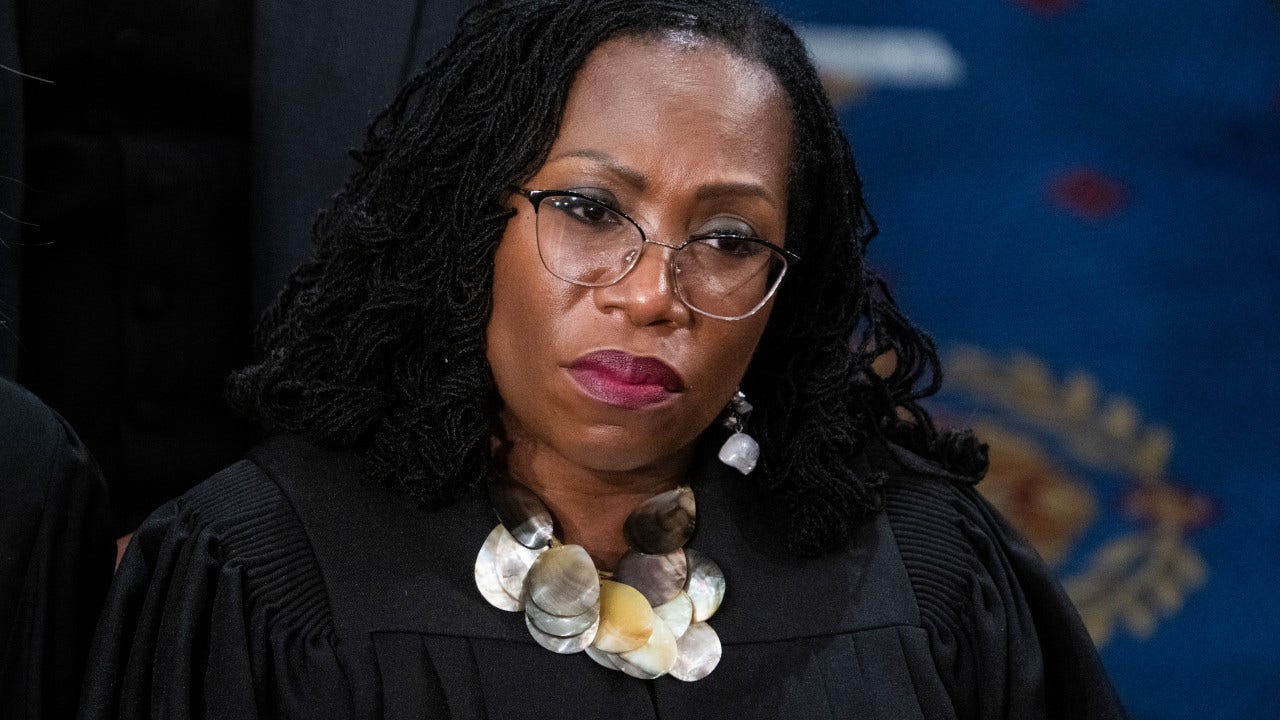Supreme Court Justice Ketanji Brown Jackson was slammed on Wednesday after she compared a Tennessee law banning gender transitions for minors to past laws banning interracial marriage.
Jackson and the other justices heard over two hours of oral arguments during the U.S. v. Skrmetti case, which involves the constitutionality of state laws banning gender transition medical procedures for minors.
U.S. Solicitor General Elizabeth Prelogar argued that state laws have the effect of “sex discrimination,” since the minor’s gender is key when determining specific medical treatments for those seeking to transition.
After Prelogar’s remarks and exchanges with the other justices, Jackson said that she saw a “parallel” between U.S. v. Skrmetti and the landmark Loving v. Virginia case in 1967.
“Interesting to me that you mentioned precedent, because some of these questions about sort of who decides and the concerns and legislative prerogatives, etc., sound very familiar to me,” Jackson said. “They sound in the same kinds of arguments that were made back in the day—50s, 60s—with respect to racial classifications and inconsistencies. I’m thinking in particular about Loving v. Virginia, and I’m wondering whether you thought about the parallels, because I see one as to how this statute operates and how the anti-miscegenation statutes in Virginia operated.”
Jackson also said there was a “potential comparison” between the Loving case and Skrmetti and wondered if Virginina could have banned interracial marriage by following Tennessee’s reasoning.
Jackson’s comments caused an uproar on social media.
Rep. Matt Gaetz, R-Fla., called Jackson’s statements an embarrassment to the Supreme Court.
“Yes, because banning a white person from marrying a black person is the same thing as cutting off a 10-year-old’s gen*tals,” co-owner of Trending Politics Collin Rugg said.


Conservatives mad on Twitter isn’t controversy worth discussing. Shoo troll.
A Justice’s highly questionable comparison between interracial marriage and transitioning the genders of minors through permanent medical procedures is worth discussing.